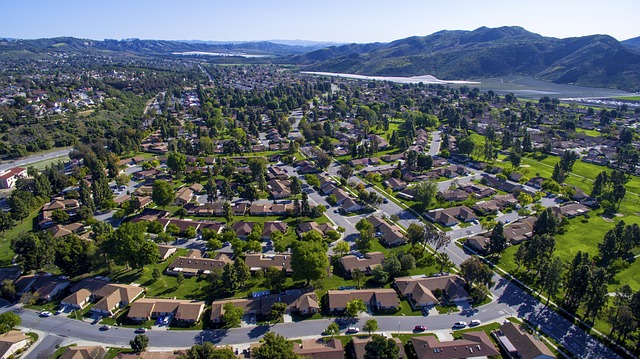Soundtrack in my head: The Telescopes, “Splashdown”

Suburbia scares me sometimes. For some reason, I get the willies whenever I visit a shopping mall—even the ones reachable by bus at either end of Madison. I can’t quite put my finger on it. I get a similar feeling near Wal-Marts, Targets and other places that have enormous parking lots. And I get a similar feeling when visiting certain homes in the suburbs—typically in buildings that are less than 50 years old—typically in places that feel very “pre-fab.” I get a feeling that somehow the walls of the place are going to come tumbling down. I see the end of suburbia coming. I don’t know if it’s a gut feeling or an overactive imagination—I’m capable of having both.
Last night, I saw the documentary “The End of Suburbia” at my co-op house, and the documentary gave a lot of justification for my “willies.” The premise is that the world has passed or is about to pass the peak of oil production. After that point, the car-dependent suburbs—with the lifestyle that is dependent on cheap oil for meeting even the most basic of needs—will become more and more dysfunctional. The rest of the economy—and the way of life we’ve become so used to and dependent on—will go down with it.
The documentary talks about the development of the suburbs and suburban sprawl, and how necessary cheap oil is to make such a system function. Essentially, American civilization and the institutions we’ve become so dependent on are built on a house of cards balanced on top of oil derricks, and once the oil stops being abundant, cards are going to start falling one by one. As one expert in the film put it, “Cheap oil is the party that we’ve been enjoying for the last 150 years.” That party appears to now be coming to an end.
According to the documentary, the main solution to the crisis will be for people to develop local, sustainable and interdependent economies of scale, so that most of people’s needs can be produced locally. This is very much in the opposite direction that our global economy is currently moving, and most of the experts featured in the documentary believe that major economic shocks will occur before people are able to develop such new infastructures. There are a variety of predictions as to when this “peak” will occur—but most predict somewhere between 2000 and 2015, with some people insisting that we are already past the peak.
To me, “The End of Suburbia,” seems like an excellent companion to Al Gore’s “An Inconvenient Truth.” It shows another dimension to future crises we are likely to face and must address. It also looks like the biggest shocks from peak oil will affect us much sooner than shocks from global warming, but efforts to reduce carbon emissions now—particularly from the automobile–can help with both crises.
Seeing this documentary has helped me feel somewhat vindicated about the choices I’ve made in my life—not that I’m any shining example per se. I do lead a simpler way of life and try to consume less, and co-op living enables the sharing of resources to a significant degree. Madison has always been a more community-oriented city, and most parts of the city are within walking or biking distance (though I haven’t gotten used to the notion of winter biking yet.) Madison has its bedroom communities, too, and parts of it are car-dependent, but the city of 220,000 is small enough that it’s comparatively easy to get around even without a car. Southern Wisconsin is also home to many co-operatives and organic farms, with lots of farmers’ markets in the area. That doesn’t mean that Madison will fare much better than other places when the stuff hits the fan, but my guess is that we’ll probably be a little better off than, say, Phoenix.
Even before I saw this documentary, I found myself thinking a bit more about the implications of such developments in my search for a new career. It got me thinking about what needs people will have in the future and what skills and knowledge will be necessary in order to meet those needs.
In any case, I highly recommend seeing “The End of Suburbia.” You can check out the promo trailer to the documentary below. There is also a sequel that came out in 2007 that I haven’t seen yet, called “Escape from Suburbia.”

I’ve had a somewhat similar experience since moving to the city. Since I grew up in a small town and had most recently been living in a small city/large college town (Columbia, MO), neither of which had good public transportation and both of which had seen their city centers decay in favor of shopping centers on all the outskirts, cars were necessary for living in both places. Now I live without a car, I’m situated within easy walking distance of my school and most shopping (and I’m always willing to pay slightly more for things if I can get them on the way home). Anything else I need I can get to on the bus. I thought that this would narrow my daily world view, but I think because of my location (virtually right downtown), I actually feel much more connected to the city at large than I would if I did have a car and could roam farther with less planning (bus routes and schedules, etc.). I’ve really been appreciating this aspect of my new life.Though I do miss my car when I just want to make a quick run for yarn…